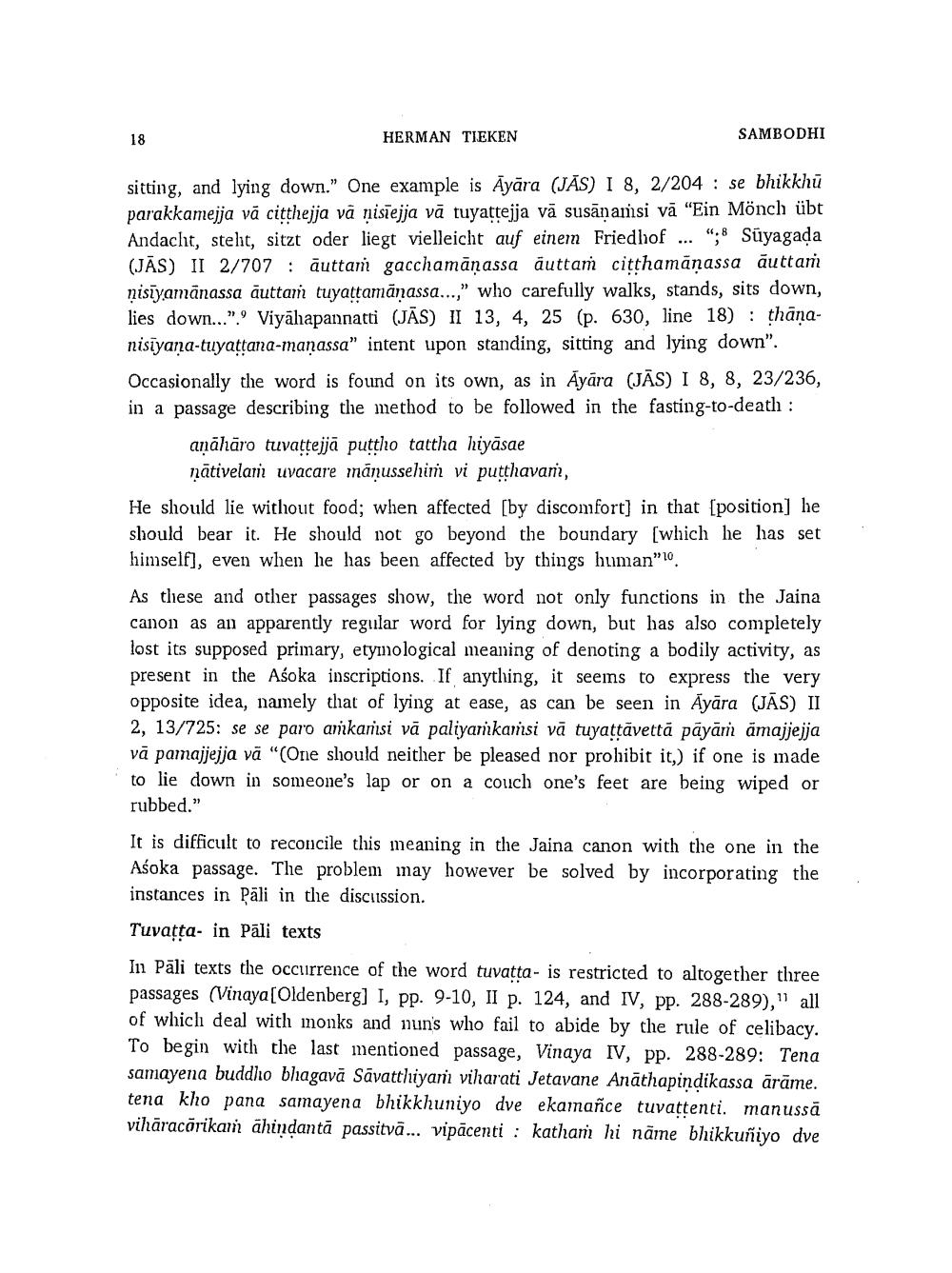________________
18
HERMAN TIEKEN
SAMBODHI
sitting, and lying down." One example is Ayāra (JAS) I 8, 2/204 : se bhikkhū parakkamejja vā citthejja vâ nisiejja vā tuyattejja vă susānausi vā "Ein Mönch übt Andacht, steht, sitzt oder liegt vielleicht auf einem Friedhof ...";8 Süyagada (JĀS) II 2/707 : auttam gacchamāṇassa auttam citthamāṇassa auttam nisīyamānassa auttam tuyattamānassa...," who carefully walks, stands, sits down, lies down...".! Viyahapannatti (JĀS) II 13, 4, 25 (p. 630, line 18) : thananisiyana-tuyattana-manassa" intent upon standing, sitting and lying down". Occasionally the word is found on its own, as in Ayāra (JĀS) I 8, 8, 23/236, in a passage describing the method to be followed in the fasting-to-death :
aņāhāro tuvattejjā puttho tattha hiyāsae
nativelan uvacare mānussehim vi putthavam, He should lie without food; when affected [by discomfort] in that {position] he should bear it. He should not go beyond the boundary (which he has set himself], even when he has been affected by things human". As these and other passages show, the word not only functions in the Jaina canon as an apparently regular word for lying down, but has also completely lost its supposed primary, etyinological meaning of denoting a bodily activity, as present in the Asoka inscriptions. If anything, it seems to express the very opposite idea, namely that of lying at ease, as can be seen in Āyāra (JĀS) II 2, 13/725: se se paro ankarisi vā paliyankamsi vā tuyattāvettā pāyāri amajjejja vā pamajjejja vā "(One should neither be pleased nor prohibit it, if one is made to lie down in someone's lap or on a couch one's feet are being wiped or rubbed."
It is difficult to reconcile this meaning in the Jaina canon with the one in the Aśoka passage. The problem may however be solved by incorporating the instances in Pāli in the discussion. Tuvatta- in Pāli texts
In Pāli texts the occurrence of the word tuvatta - is restricted to altogether three passages (Vinaya[Oldenberg] I, pp. 9-10, II p. 124, and IV, pp. 288-289)," all of which deal with monks and nun's who fail to abide by the rule of celibacy. To begin with the last mentioned passage, Vinaya IV, pp. 288-289: Tena samayena buddho bhagavā Sāvatthiyanı viharati Jetavane Anāthapindikassa ārāme. tena kho pana samayena bhikkhuniyo dve ekamañce tuvattenti. manussā vihāracõrikar āhindantā passitvā... vipācenti : katham hi näme bhikkuñiyo dve




